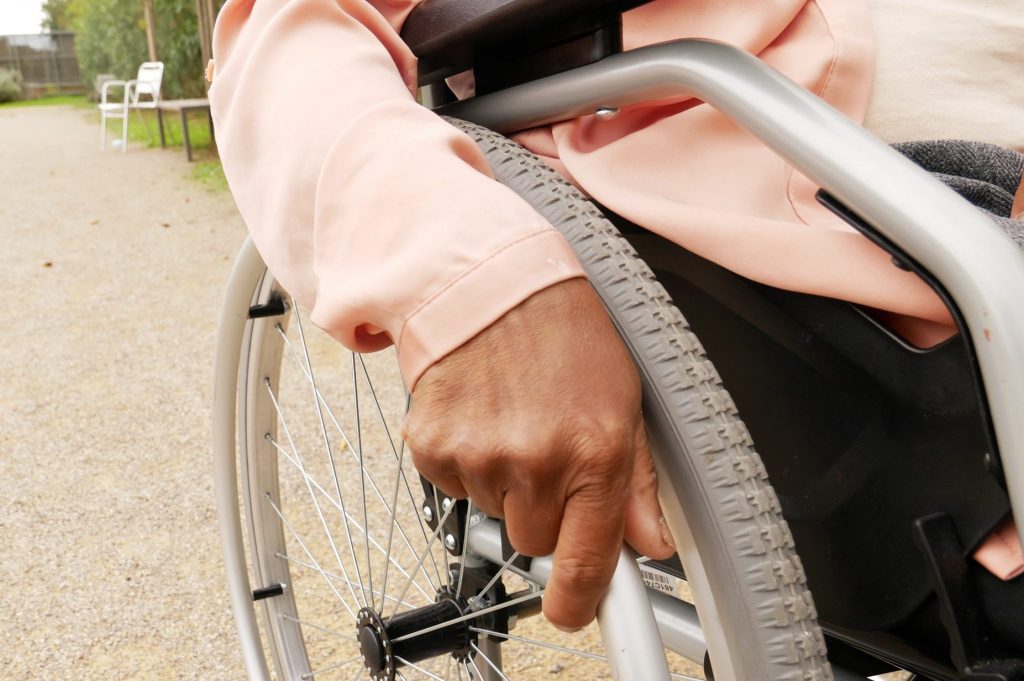Skift Take
They are among the most resilient travelers on the planet. But the pandemic is testing the mettle of travelers with disabilities — and the businesses that support them — in unique ways.
For most segments of the population, Covid-19 has largely shut down non-essential travel. But even the local travel happening now is adding to the challenges faced by one group: travelers with disabilities.
“Covid-19 has put a 100 percent hold on our tours for individuals with developmental disabilities,” said Don Douglas, the owner of Able Trek Tours, a Wisconsin-based tour company that specializes in accessible travel, as “many destinations and attractions (such as sporting events, festivals, and concerts) we frequent are closed.”
Indeed, Douglas is far from the only figure involved in accessible travel hamstrung by the global pandemic.
“The biggest impact on travel for those of us using personal care is getting carers to go out with us,” said Josh Grisdale, the founder of Accessible Japan, an online community that provides support to disabled travelers. “Some agencies that provide carers don’t want us to go out at all and potentially expose the carer to Covid-19 as they would take it to other clients (including those with more severe disabilities).

New taxis called “JapanTaxi” are modeled after London Cabs and can be found fairly easily at airports and even on the street. Source: Accessible Japan.
As Grisdale noted, the pandemic has exacerbated the challenges disabled travelers face. “Social distancing is impossible and proper care is impossible without occasional intimate contact between staff and travelers,” Douglas added.
Obviously, the current state for accessible travel doesn’t look rosy. Especially as in Douglas’ case, a large percentage of his guests have underlying health conditions. Not surprisingly, many disabled travelers express Covid-19-related concerns. A survey of 330 people with disabilities taken by entrepreneur Josh Wintersgill revealed that more than a third of respondents stated they would be unwilling to travel by air until a Covid-19 vaccine is available. Furthermore, other concerns included social distancing not being followed at airports and on board planes as well as being in confined spaces.
And in some cases, the future for accessible travel does not look any brighter. According to Candy Harrington, the editor of the accessible travel focused blog Emerging Solutions, numerous small operators that specialize in travel for disabled people may not survive the downturn.
In addition, noted John Sage, the CEO and founder of Accessible Travel Solutions (the only accessible travel company on the World Travel and Tourism Council), the demise of some accessible travel companies will lead to a lack of accessible vans and trip planners.
How will businesses that specialize in accessibility survive? It helps to use the down time wisely. Stephen Cluskey, the co-founder and CEO of Mobility Mojo, an Irish-based company that works with hotel groups worldwide to promote accessibility information, said recently at Skift Global Forum that his business has been able to be innovative despite being locked down for several months. “I read a great quote from someone who said Covid was like Mother Nature,” Cluskey disclosed. “It sent us all to our bedrooms to think about what we’ve done.”
Likewise, Srin Madipalli believes forward-thinking businesses can make it through the likely challenging next couple of years. Madipalli, the cofounder of the accessible lodging startup Accomable and former head of accessibility for AirBnB, maintains that success will be determined by “how they’re run and what their resourcing is and how much they can tighten their belts.” The desire to travel obviously won’t die, so “how do those businesses pivot their business models? For example, how do they re-adapt their business models to facilitate travel to places where maybe [there] isn’t as much risk?”
What else will the future bring in the world of accessible travel? Sage believes — not surprisingly — some of the larger companies will choose to pause their accessible travel market plans. “Others will continue moving forward and will be significantly ahead of their competitors,” he added.
Part of moving forward includes working to ensure guests are as safe as possible — and informing them how they’ll be kept safe. Lack of information is already an enormous hurdle in getting disabled people to travel in the first place. Cluskey asserts more than 50 percent of people with accessibility needs don’t travel because of a lack of information on accessibility.
“We actually have an effort going on right now to work on health and safety for our accessible travel products,” Accessible Travel Solutions’ Sage said when asked how the need to test factors into planning excursions. “We’re [devoting a lot of] effort [to] testing, social distancing, and sanitation,” he notes, adding that Accessible Travel Solutions will work to incorporate more outdoor activities in its excursions to diminish the risk of guests contracting Covid-19.
Finally, the aftermath of Covid-19 might very well bring a major jolt to the accessible travel industry. According to Sage, among the recommendations by the so-called Healthy Sail Panel of Norwegian and Royal Caribbean International on how to make sailing safe is requiring guests to embark on “official” shore excursions. “You can no longer go on your own and you can no longer book independently with a local operator,” he revealed.
“The problem is that many of the cruise lines and many of the ports have zero accessible shore excursions. So what’s gonna happen is that able-bodied people are allowed to go ashore and disabled people are not permitted to go ashore. I’ve seen on a bunch of Facebook groups and discussion boards [that] people are both worried and a little bit angry if that happens.” Sage added the cruise lines are oblivious to the horde of customer complaints. “It’s a big problem that’s not on the radar of cruise lines.”
Fair to say, the next couple of years in the accessible travel industry might be tumultuous.
The Daily Newsletter
Our daily coverage of the global travel industry. Written by editors and analysts from across Skift’s brands.
Have a confidential tip for Skift? Get in touch
Tags: accessible travel, coronavirus
Photo credit: Travelers with disabilities are facing their own unique challenges during the pandemic. Life pics / Adobe

